Are Eggs Good for You?
Whether eggs are actually good for you is a hot topic for sure with people staunchly on one side of the argument or the other. Let’s take a minute to talk about the nutritional value of eggs.

In every single Food for Life nutrition education and cooking class that I have ever taught, the question, “What’s the big deal with eggs?” always comes up. It’s a loaded question, concerning the Nutritional Value of Eggs, that requires the separation of actual facts from industry-funded fiction. So are eggs good for you or not?
Nutritional Value of Eggs
I love the quote from Dr. Neal Barnard with the Physicians Committee for Responsible Medicine. “There are only two problems with eggs– the yolk and the white.”
- The Yolk is loaded with cholesterol that can lead to heart disease, and nearly 70% of an egg’s calories are from fat—a big portion of which is saturated.
- Egg White is pure animal protein. Animal protein has a number of negative effects on the body including causing inflammation, putting a burden on the liver and kidneys, raising IGF-1 hormone levels, as well as causing a rise in cholesterol levels.
“Adding a concentrated source of animal protein to the diet can increase the risk for kidney disease, kidney stones, and some types of cancer.” —Susan Levin, MS, RD
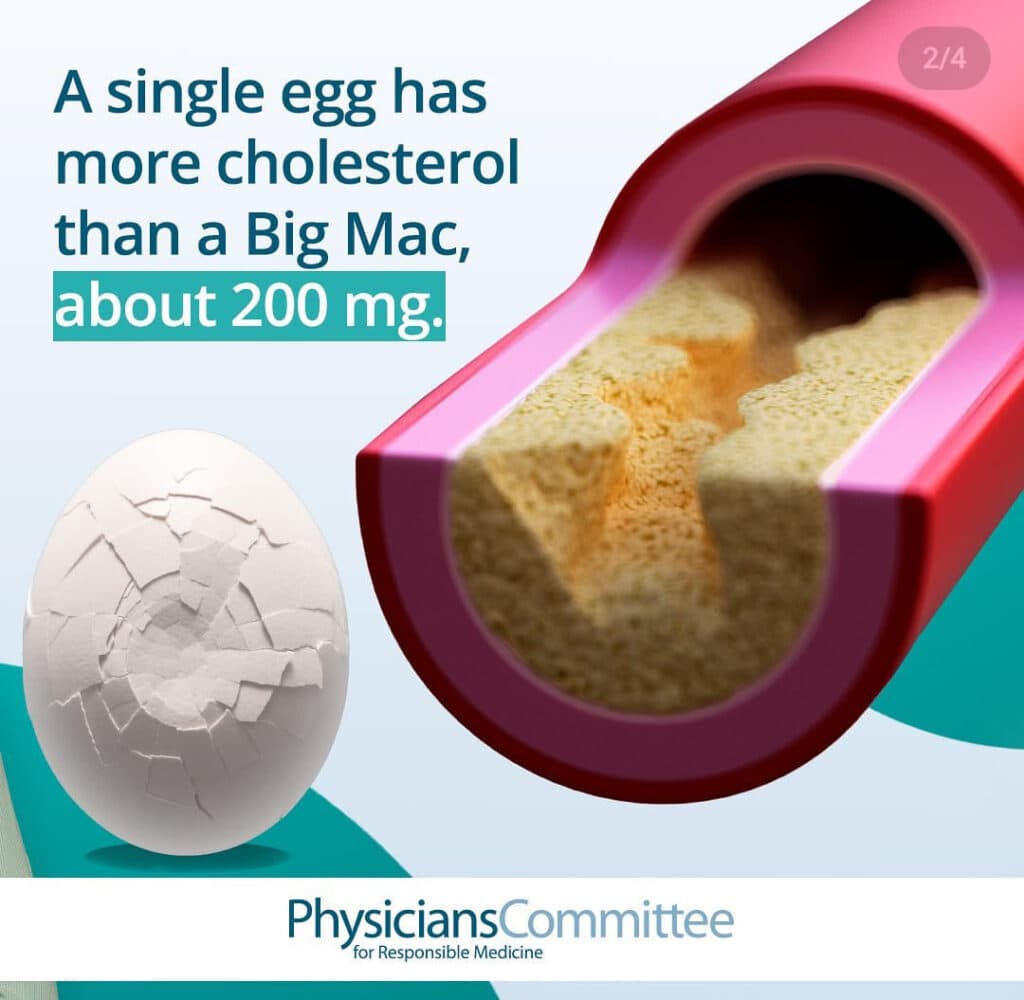
How much cholesterol is in an egg?
- One medium-sized egg 187-213mg
- Big Mac 65mg
- Big Mac with cheese 80mg
- Burger King Whopper Sandwich 90mg
- Burger King Whopper with cheese 115mg
Since one egg has the same amount of cholesterol as a Big Mac, it is unnecessary—even detrimental to your health—to consume eggs or egg products. One egg has more cholesterol than your body needs.
In fact, any added dietary cholesterol is unnecessary because our bodies already produce more than the amount we require. An excess of cholesterol leads to heart disease, so it’s no surprise that a 2010 study in the Canadian Journal of Cardiology found that those who consume the most eggs have a 19 percent increased risk for cardiovascular problems.”– Physicians Committee
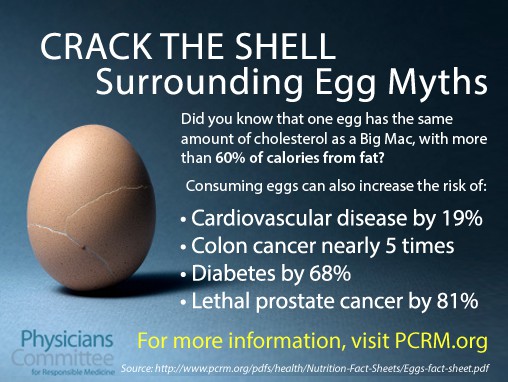
Studies suggest that there is a dose-response positive association between egg consumption and the risk of Cardiovascular Disease and diabetes.”– Egg consumption and risk of cardiovascular diseases and diabetes: a meta-analysis. NCBI PubMed
A widespread misconception has been developing among the Canadian public and among physicians. It is increasingly believed that consumption of dietary cholesterol and egg yolks is harmless.”–Dietary cholesterol and egg yolks: not for patients at risk of vascular disease. NCBI PubMed
Does the dietary cholesterol in eggs raise blood cholesterol?
This information from Dr. Michael Greger at NutritionFacts should be helpful to understand. “The question ‘Does egg feeding (in other words dietary cholesterol) affect the level of cholesterol in the blood?’ was answered 40 years ago. Give someone half a cup of eggs a day, and within two, three, or four weeks their cholesterol keeps going up. And then, stop the eggs by switching to an egg substitute, and the cholesterol comes down. Or start people on the egg substitute, and not much happens, but then start feeding eggs, and their cholesterol shoots right up.
Put people on a cholesterol-free diet, and their cholesterol drops; then add some egg yolk cholesterol, and their cholesterol goes up; take it away, and their cholesterol goes down. You could do this all year.
And it’s within days. After 10 days of eggs, cholesterol shot up 50 points. Take the eggs away, and it comes back down. You can reproduce this effect over and over and over and over (though evidently penguin omelets are only about half as deadly).
Switch people from a high-cholesterol diet to a cholesterol-free diet, and you can drop blood cholesterol levels by as much as a hundred points. Okay, but that was giving people more than a half cup of egg yolks a day. But even just a single egg a day can increase people’s LDL cholesterol by 12 percent. Put all such studies together in this 2020 meta-analysis, more than 50 randomized controlled trials feeding people eggs, and egg consumption significantly increases LDL-cholesterol, period.”
Do we need some cholesterol?
Our bodies produce the exact amount of cholesterol needed. There is no need to consume any in our diets whatsoever. That’s why we don’t see any cholesterol supplements being sold in stores. None of us are missing any from our diets.
Cholesterol is only found in animal products because their bodies produce what they need and, when we eat them, we consume theirs. There is zero cholesterol in plant foods. So, if a food label on a product contains any cholesterol on the nutritional label, it has some form of animal protein in it.
Money-Driven Myths Fueled and Funded by the Egg Industry
Many of us remember back in 2014 when the Dietary Guidelines Advisory Committee (DGAC) suddenly removed limits on dietary cholesterol, based on a study that had just been released.
The new study titled Is Butter Back? A Systematic Review and Meta-Analysis of Butter Consumption and Risk of Cardiovascular Disease, Diabetes, and Total Mortality analyzed nine papers that included more than 600,000 people and concluded that consuming butter is not linked to a higher risk for heart disease and might be slightly protective against type 2 diabetes.
Media outlets grabbed onto this information that claimed saturated fat wasn’t bad for us after all and blasted it out to the public. TIME magazine’s front cover touted, “Eat Butter!”
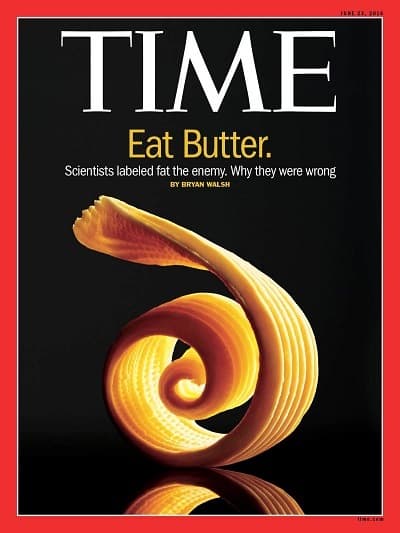
After following the money trail concerning this study that went against long-standing recommendations, the Physicians Committee for Responsible Medicine found that several of the Dietary Guidelines Advisory Committee’s (DGAC) members came from institutions that were funded by the egg industry and relied on egg-industry-funded research findings when it removed limits on dietary cholesterol.
Physicians Committee filed a lawsuit which alleged that in allowing this to happen, the USDA and HHS violated the Federal Advisory Committee Act, which mandates that the advisory committee “will not be inappropriately influenced by the appointing authority or any special interest.”
According to previously unreleased documents obtained by the Physicians Committee under the Freedom of Information Act, the American Egg Board had directly nominated one individual who was then placed on the DGAC.
A second member was actively receiving egg-industry research grants according to industry documents, and two others worked at a university that had requested and received more than $100,000 from the American Egg Board for research aimed at challenging the cholesterol limits.
The DGAC then skipped its usual procedure of reviewing scientific studies and recommended that the cholesterol limit be dropped without an appropriate review of relevant research.
Breaking with the Food and Drug Administration and the Institute of Medicine, both of which hold that cholesterol in eggs and other foods increases blood cholesterol levels, the DGAC reported in February 2015 that cholesterol is no longer “a nutrient of concern for overconsumption” and that “available evidence shows no appreciable relationship between consumption of dietary cholesterol and serum cholesterol.”–PCRM
No wonder the public is confused! Even the medical community has a hard time sifting through facts and fiction. Industries make it more difficult by muddying the waters. This short 3-minute clip helps debunk some of the myths.
We’ve been here before
It’s really not about an agenda here. It is about the mounting avalanche of science over the last 50 years. Can’t help but see the correlation here.
I came from a family of heavy smokers in the 60s and 70s. They were vehemently opposed to the research coming out at that time too. I remember hearing the anger when the news came on reporting that cigarettes were being linked to lung cancer. My parents and grandparents were sure that tobacco was what was helping their sinuses, throats, and emotional state at that time. We’ve already been here before, just with a different ‘agenda.’
I realize that there are stories of people living into their 80s and 90s on the very unhealthy Standard American Diet and smoking their whole lives, but those stories are not the norm. My maternal grandfather was a heavy smoker his entire life and lived to be 93, and very healthfully until the final two years. But, I still believe smoking causes cancer.
*This article was originally published in 2018. It was updated in 2023.
Other Related Articles
- Understanding Nutrition / T. Colin Campbell, Ph.D
- The Healthiest Foods to Eat
- How Not to Die / Dr. Michael Greger
- Big Industries Influence USDA Food Guidelines
- Scientific Research Suggest, Milk Does NOT do the Body Good
About Terri Edwards
Hi guys! I am the content creator behind EatPlant-Based and a licensed Food for Life instructor with the Physicians Committee for Responsible Medicine. I am passionate about sharing healthy recipes and tips to empower others to get healthy. I’m so glad you’re here! Read More…



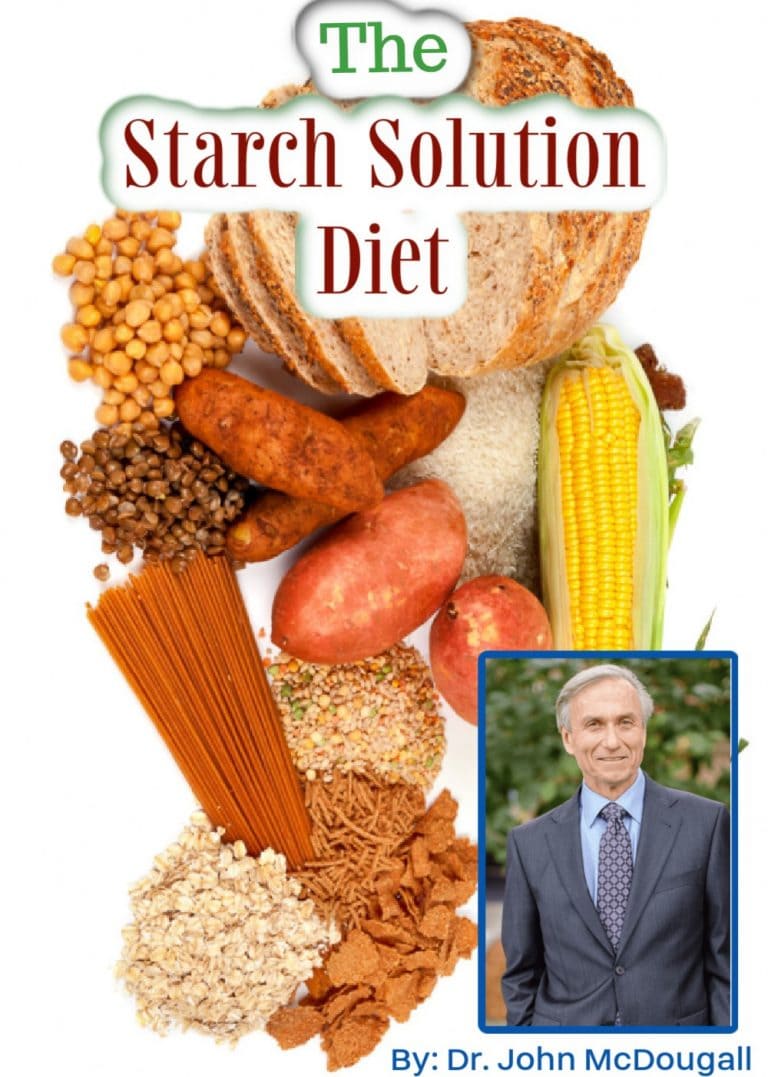
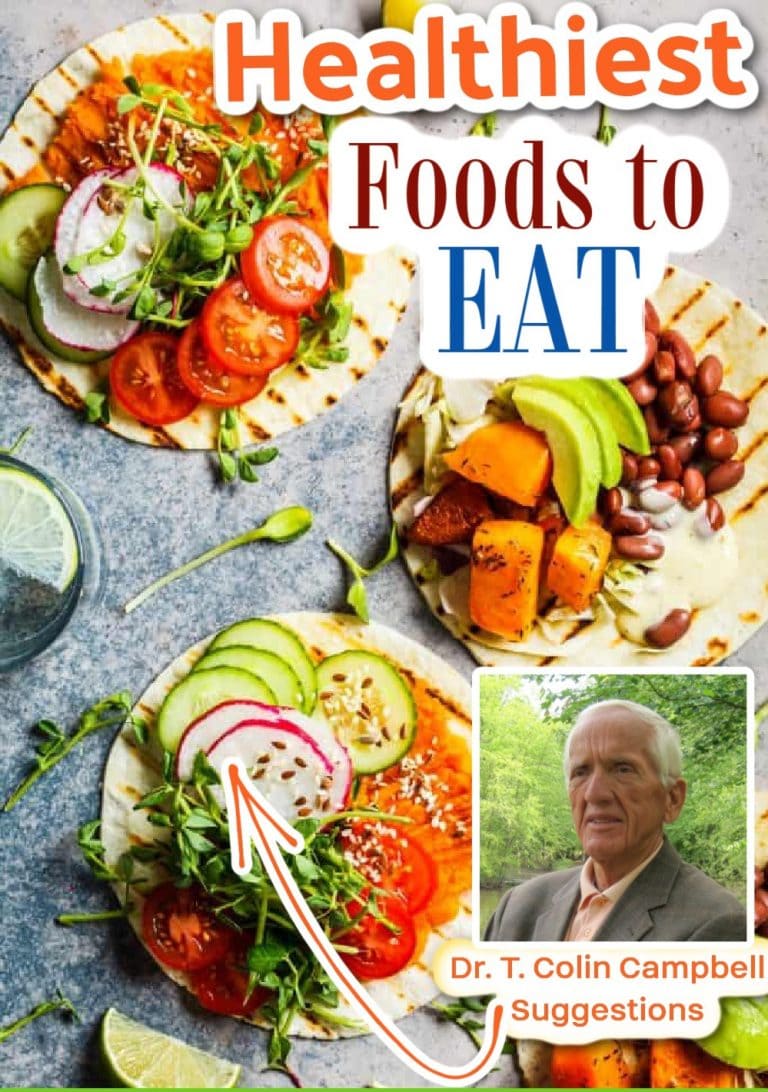


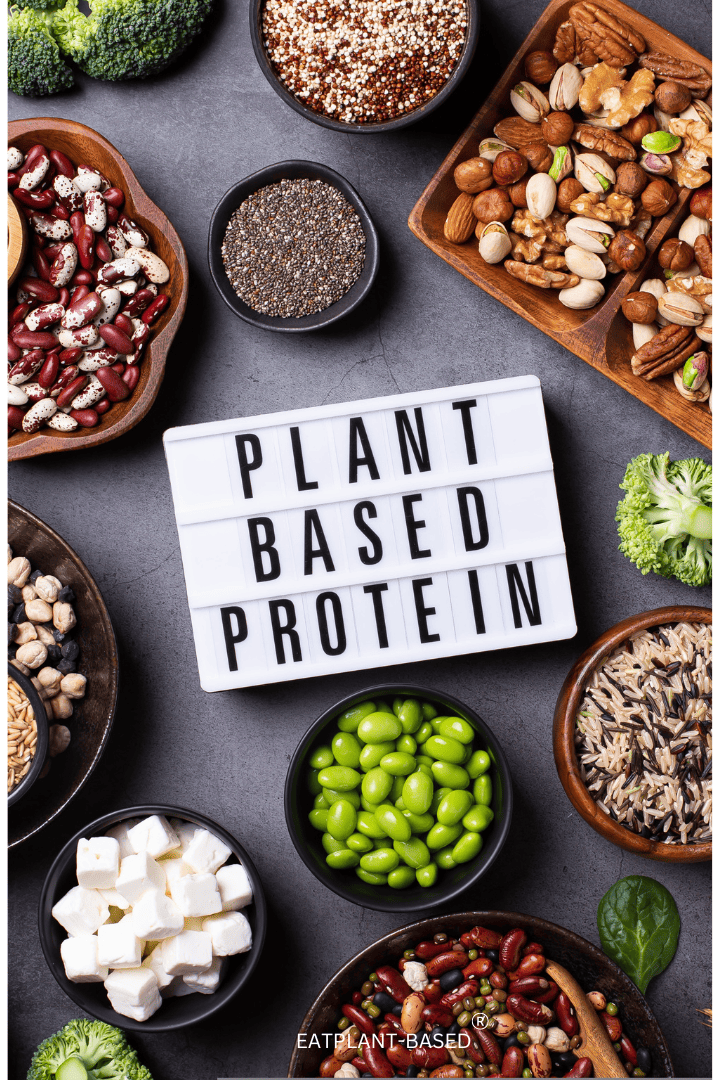
Well……there goes my love of eggs. Eggs have the same cholesterol measurements as a Big Mac which I don’t eat. Thanks for the awareness and this amazing website.
#StartingAVeganLifeStyle